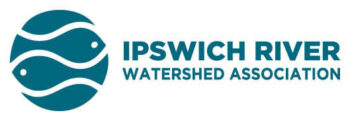We are the voice of the Ipswich River. Join us!
Challenges Facing the Ipswich River
Polluted rainwater runoff, called stormwater, is the most significant water quality problem facing the Ipswich River, impacting wildlife, public access sites and contributing to shellfish bed closures in the estuary.
The Ipswich River watershed provides drinking water to 350,000 people and thousands of businesses in 14 communities in northeastern Massachusetts. These water withdrawals impact the water levels and temperatures of the river and its tributaries, especially in summer when non-essential outdoor water use increases.
The Ipswich River watershed has many floodplain forests, marshes, ponds and streams that serve as important habitat to a variety of wildlife. Barriers to streamflow, erosion, and invasive aquatic plants are just some of the factors that can harm our river’s biodiversity and health.
RIVER CONDITIONS
Having enough flowing water is essential for river health and recreation. We keep track of Ipswich River flow levels by monitoring two real-time USGS streamflow gages on the Ipswich River. This is a good way to assess whether there is enough water to support aquatic life and is a great indicator of paddling conditions.
